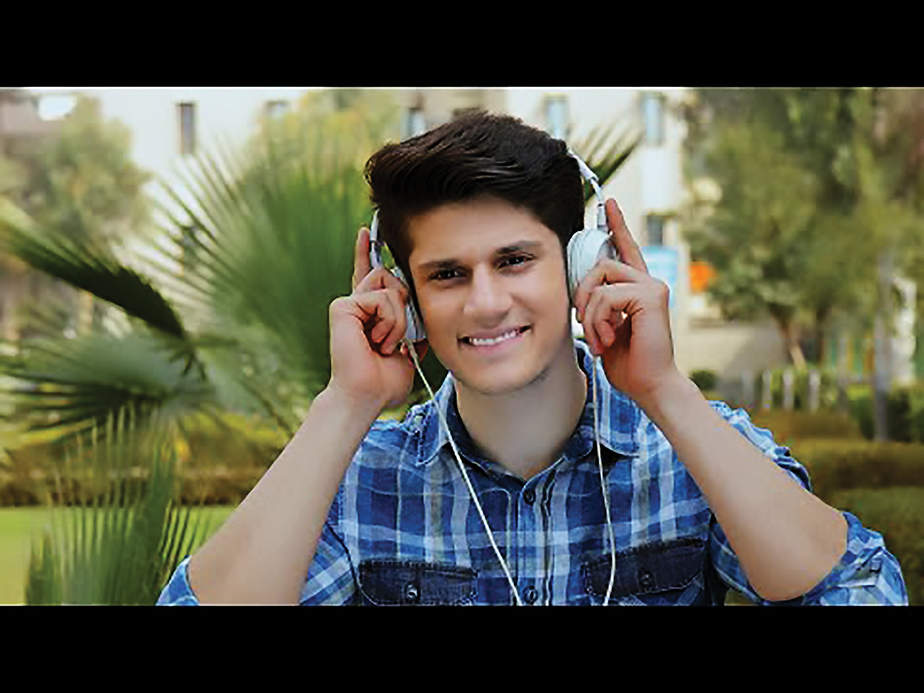
If you like it then you should’ve put a ring on it (slowly fading away). Song finishes. “Listen to Diljeet Dosanjh’s new song. (A clip of the song plays)Putt Jatt Da – O aakhin naa tu’n putt jatt da [o-ho] Mein v shaddi je naa haa’n karva ke.” A female voice goes on to say, “A Gaana exclusive only on Gaana.” Then comes the Gaana jingle — Bas Bajna chaiye Gaana.
The mood which Beyonce pumped up is slowly fading away just like the advertisement which interrupted after the song ended. I asked myself a question — When will you subscribe to the premium version?
This is happening at a party, where I have my phone is connected to the giant speakers at my friend’s place. Whether there’s Alright by Kendrick Lamar pumping out of the speakers or Lilac Wine cover by Nina Simone, the ad will show up, dwindling the euphoria of the people in the room.
As expected, a friend who’s sitting right next to me, asks, “Why don’t you subscribe to it?” I give her some random excuse like, “Oh, I have to incur several other expenses this month.”
Oftentimes when the ad shows up, and a Punjabi or a Bollywood song is being promoted, it feels like a dagger to the heart, but it also acts as an invisible friend who suggests a change in the playlist.
Gaana, one of the biggest music streaming app in the country today, has a huge collection of songs — 30 million songs in the Hindi catalogue alone. It has two models for users. One is a paid one, which gives you ad free music and also an option to download your favourite songs with the ease of a tap.
Again, the same question crops up in my mind — When will you subscribe to the premium version?
Early last year, I subscribed to Netflix, a content juggernaut of our times. Since the group plan can be used by up to four persons, the per head cost comes at Rs 200 a month.
Although one can get a yearly subscription of Gaana+ for just Rs 499, the idea of not paying for the music we consume, despite having to deal with the ads seems more attractive.
In the early 2000s, when the Internet finally reached most of the homes across the world, the music industry was dealing with the issue of digital piracy.
Piracy was rampant by now, and then came Napster, a free file-sharing network that allowed people around the world to share songs with one another. This was the downfall of the music industry, and the sales it relied on.
In India too, the problem of music piracy was reaching stratospheric levels. In fact, with websites like songs.pk and songsmp3.org, the Internet became a safe haven to download low-quality soundtracks of any Bollywood movie.
When it comes to displaying the ads, the music apps have not been creative. You get one standard ad, which plays mostly a song by an artist you may or may not have heard of. Like Google, YouTube and Facebook, these streaming platforms have not yet implemented personalised ads.
With personalised ads, you get the option of seeing the ads, which match your taste and interests. They’re still annoying, but a little less.
It’s my turn to pay for the Netflix subscription this month. But for the music apps, I give moving away from the free version (or not) a second thought because anything that comes for free is hard to let go.
Meanwhile, I’m waiting to listen to The Blacker the Berry by Kendrick Lamar as Damn is about to end (thanks to Gaana suggestions). Unexpectedly comes in Diljit Dosanjh’s latest track promotions (again), and I wait for five seconds, so that I can tap on ‘skip’, and continue listening to Lamar.
Experts say stress, lifestyle habits and underlying medical conditions are driving ED in men under…
National Green Tribunal fined the Delhi Pollution Control Committee Rs 50,000 for over a year’s…
Delhi Zoo will receive a tiger, gharials, wolves and owls from Patna, while sending a…
Veteran actor Anil Kapoor reflects on four decades in cinema with gratitude as he takes…
Indian Youth Congress president held as police tighten security and invoke conspiracy and unlawful assembly…
Police said the Rajasthan native, undergoing depression treatment, jumped in front of a train at…